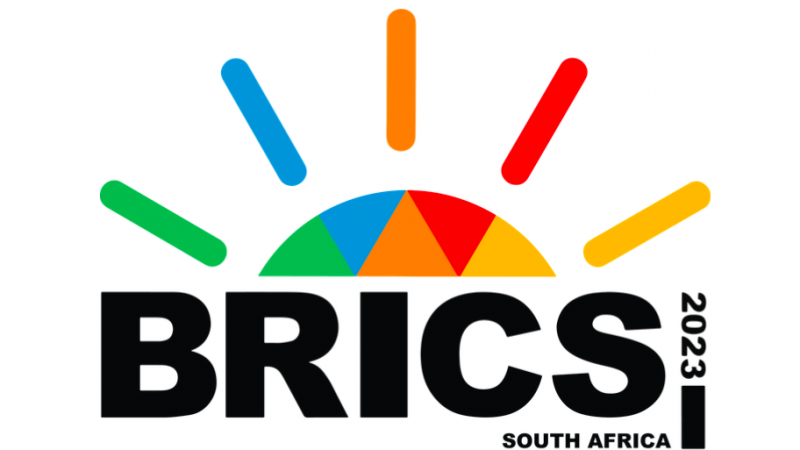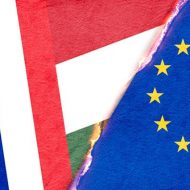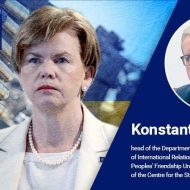O world, o humanity, good news! The BRICS Summit, held in South Africa on August 22-24, ushered in a new era for humanity. For the first time, a new international order is being established in which the oppressed determine the framework, not only for themselves but for people all over the world.
Developing countries are joining forces against the hegemony of the US and building an egalitarian, just, and development-based international order step by step. With the recent BRICS Summit, the world of the oppressed has crossed a critical threshold in building institutions that will protect the interests of all of humanity.
BRICS doubled in size
Now the number of BRICS members has increased to 11. Argentina, Egypt, Iran, Saudi Arabia, Saudi Arabia, the United Arab Emirates, and Ethiopia are the new members of BRICS. South African President Cyril Ramaphosa, the host of the summit, announced that membership will begin on January 1, 2024.
Similar impact as the Bandung Conference
The last BRICS Summit will leave a deep mark like the Meeting of Asian-African Countries held in Bandung, Indonesia on April 18-24, 1955. The Bandung Conference became a symbol for the oppressed nations that gained their independence after World War II to mobilize against imperialism and colonialism. Many southern countries gained their independence following the Bandung Spirit. The Bandung Conference set an example of solidarity among oppressed nations and resulted in them putting their weight on international institutions such as the United Nations. The 2023 BRICS Summit was attended by representatives of 55 developing countries.
This extraordinary turnout signals a change where the governed will become the rulers. Because oppressed nations now constitute the largest share not only in terms of population but also in the world economy. From now on, they are establishing a system that will no longer allow three or five rich countries to eat the rights of the vast majority.
The leader who has contributed most to the summit success
The leaders of the five BRICS member countries positively contributed to this successful Summit. However, Chinese President Xi Jinping deserves the most credit for this success, as he has been committed to BRICS from the beginning. “Development is not the prerogative of a few countries, but an inalienable right of all countries,” he summarized the Summit.
Russian President Vladimir Putin, who was physically absent from the summit due to US bullying, said that “despite the difficulties, the BRICS countries have increased their cooperation. Our joint work to ensure economic growth and sustainable development brings tangible, tangible results” was an echo of BRICS’ success. Cyril Ramaphosa, President of South Africa, and the host of BRICS, did justice to his role. BRICS’ embrace of African countries created hope. India’s Prime Minister Narendra Modi and Brazil’s legendary President Lula De Silva also made history for their brilliance.
The US is in panic
The US is alarmed by the institutional rise of the oppressed nations. At the start of the BRICS Summit on August 22, National Security Advisor Jake Sullivan announced that US President Joe Biden will call for reforms at the G20 summit in New Delhi next month to ensure that the IMF and World Bank better serve the needs of developing countries.
“We have heard loud and clear that countries are asking us to step up our support in the face of the overlapping challenges they face,” Sullivan told reporters.” Biden will devote much of his energy at the G20 to modernizing multilateral development banks, including the World Bank and the IMF.”
But there is a very clear reality: The IMF will be irrelevant on the international stage if the US continues to control it. The IMF and the World Bank, which were established as the cornerstones of the Bretton Woods global financial order, are clearly instruments for protecting the interests of three or five developed countries and for their imposition on other countries. UN Secretary-General António Guterres said that “the IMF’s rules unfairly favor rich countries. The UN Secretary-General used an example to illustrate how crooked the IMF is: “During the Covid-19 pandemic, the rich G7 countries with 772 million people received $280 billion from the IMF, while the least developed countries with 1.1 billion people received just over $8 billion.”
The G7 currently holds 41.25 percent of voting power in the IMF. This means that the US and its allies have almost complete control over IMF decision-making. Developing countries have enough experience to realize that Biden’s “promise to reform” is just another tactic in the US effort to maintain its hegemony.
An African country on the way to UNSC membership
One of the greatest injustices in the world is that the African continent- 54 countries and one billion people – is not represented in the UN Security Council (UNSC). More than 60 percent of the issues discussed by the UNSC focus on Africa. It is a violation of justice at the most fundamental level that African countries, as non-permanent members of the Council, can only participate in critical negotiations and decision-making processes. It has become imperative that the UNSC undergoes a fundamental transformation.
The 2023 BRICS Summit opened the door to correcting the injustice done to our pearl-toothed, black-skinned brothers and sisters for centuries. Africa, which rose with the new great wave against imperialism and colonialism, is close to joining the UN Security Council.
Türkiye must not be late!
The “New International Order of the Oppressed” is being established rapidly to liberate humanity from the monstrous US domination and Western hegemony.
Turkiye should take its leading place in the effort of building the new world order immediately. Turkiye should apply to join the BRICS without delay!









Leave a Reply